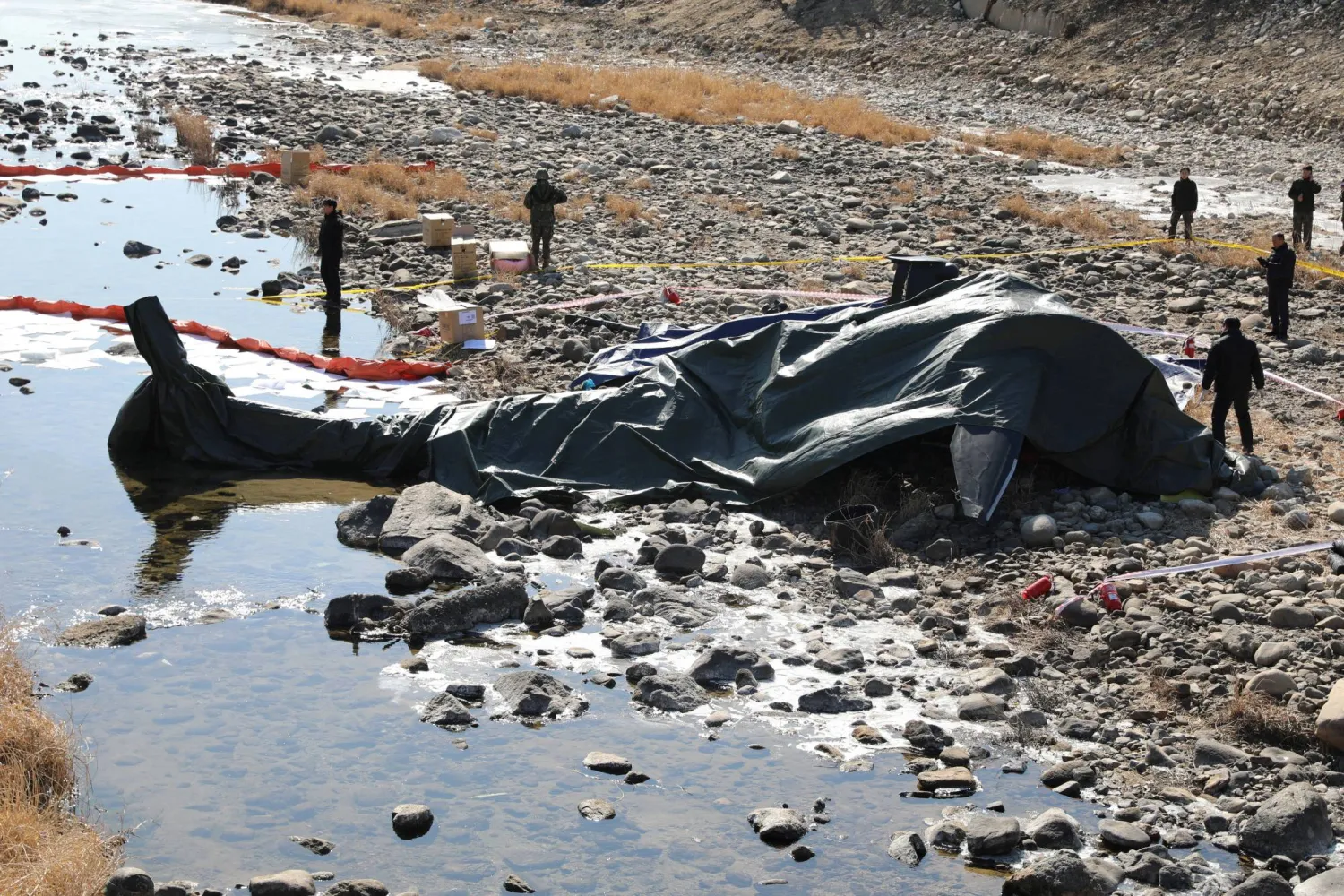Israeli Foreign Minister Eli Cohen has sought to convince his German counterpart, Annalena Baerbock, in Berlin to tighten sanctions against Iran, sending a strong message before the Board of Governors of the International Atomic Energy Agency meeting (IAEA).
Earlier, Bloomberg published a report stating that international inspectors in Iran detected enriched uranium to 84 percent, just six percent below what is needed for a weapon.
The agency did not deny or confirm the report but only said it was trying to clarify the issue from Iran.
Iran strongly denied enriching uranium at such a high rate. It invited the IAEA Secretary-General, Rafael Grossi, to visit Iran before the meeting of the Board of Governors next Monday.
Iran's nuclear activities overshadowed Cohen's meeting with Baerbock in Berlin, where the German Foreign Minister expressed concern over Iran's "continued nuclear escalation."
"There is no plausible civilian justification for such a high enrichment level. Iran must not acquire a nuclear bomb. That is our common position, which is the objective of our diplomatic endeavors," she said.
Baerbock indicated that the Iranian regime is no longer just a regional problem, accusing it of threatening stability and security in the Middle East.
The top diplomat confirmed that Germany is consulting with other European countries and the US on dealing with reports that Iran has increased uranium enrichment. She was in Geneva on Monday and participated in meetings at the UN without holding talks with Iranian Foreign Minister Hossein Amirabdollahian.
Baerbock asserted it was necessary to find a diplomatic solution because any alternative would be devastating.
At a joint press conference, Cohen said that Western countries must act now to prevent Iran from obtaining nuclear weapons, which would be possible by re-imposing the sanctions using the "snapback" system.
Cohen called on Western countries to increase diplomatic pressure on Iran within the IAEA, noting that the Iranian regime is doing everything possible to obtain a nuclear weapon.
He described the Iranian regime as threatening the region, Europe, and the world.
Cohen called on Germany to classify the Iranian Revolutionary Guard Corps (IRGC) as a terrorist organization within Germany and at the level of the European Union.
Last week, European officials said there are no legal grounds yet to classify the IRGC as a terrorist organization.
Meanwhile, the Iranian FM responded from Geneva to the increasing pressure on his country over its nuclear program.
Speaking at the Conference on Disarmament High-Level Segment, Amirabdollahian said Iran warned against any possible "unwise decision" by the IAEA Board of Governors' upcoming meeting in March. He indicated that Iran reserves its right to give an appropriate response.
Amirabdollahian claimed his country received messages from the US stating it was willing to return to the nuclear agreement.
He indicated that Iraqi Prime Minister Mohammed Shia al-Sudani received a message from Foreign Minister Fuad Hussein after his return from Washington, stating that the US administration was ready to agree on the nuclear deal and pursue the talks.
US State Department spokesman Ned Price denied the matter and accused the Iranian foreign minister of promoting lies.
Price said that Washington did not send any messages to Tehran and that the issue of returning to the nuclear agreement has not been on the table for months.
Senior European sources told Asharq Al-Awsat in Munich that now is not the right time to return to the nuclear deal due to Iran's suppression of the protests, saying Western countries were now focused on severing Iran's growing military relationship with Russia.
For two days in Geneva, Amirabdollahian tried to portray the protests in Iran as "acts of terrorism" in a speech before the Human Rights Council.
He denied that the Iranian regime was practicing repression and accused Persian media in London and Washington of inciting terrorism.
Despite the meetings that Amirabdollahian held in Geneva, they showed the increasing isolation of the Iranian regime since the start of suppressing the protests, condemned by most Western speakers before the Human Rights Council.
The Iranian FM met with UN Secretary-General Antonio Guterres and foreign ministers of Finland and Belgium.
Belgium’s FM said she discussed the issue of the Belgian detainee in Iran and called for his release.









